We all need to cry sometimes, scientifically tears are divided into three different types based on their origin. Basal tears, reflex tears or emotional tears. We are all familiar with these ways of crying, but how do they look microscopically? Is there any difference? Science says that every tear has a different viscosity and composition. All tears contain a variety of biological substances including oils, antibodies and enzymes suspended in salt water. But how does this relate to the “real world”.
Because of these questions I decided to start an evening of experimenting with my close friends. I asked them to come over and pick a way they would like to cry from. The options they could voluntarily choose from where: cutting onions, eat hot peppers, look in to a fan or cry because of sadness or happiness. To see if there was a resemblance or difference in the structure of forming tears, I took images of every tear drop under the microscope.
A relatively simple and fun proces, first you capture the tear with a micropipet. After you have the tear you dispense it on too a microscopic slide by making several small (2–4 mm) drops. After this step it takes some time to crystalize and settle. After the tear drop(s) are crystallised it’s possible to take images and start comparing.
The structures seen under the microscope and in the images are largely crystallized salt, the circumstances under which the tear dries can lead to radically dissimilar shapes and formations, so two psychic tears with the exact same chemical makeup can look very different up close.
The results
So I think its safe too say that the differences in tears that are seen are not showing differences between the origins of crying, but just show a composition of the tear it self and the circumstances it crystallised in. Never the less they are beautiful to look at.
Emotional Tears:
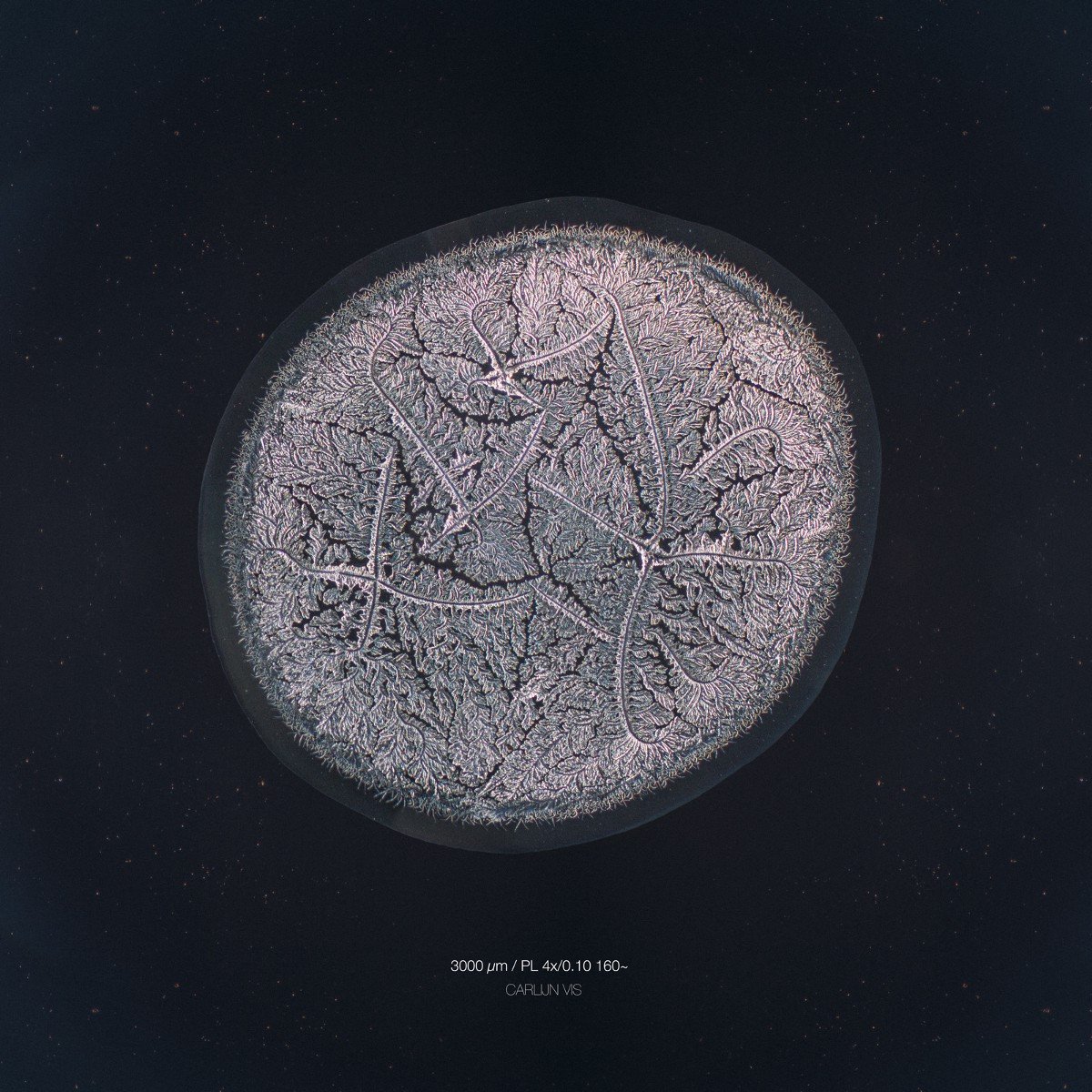
Tear of mourning
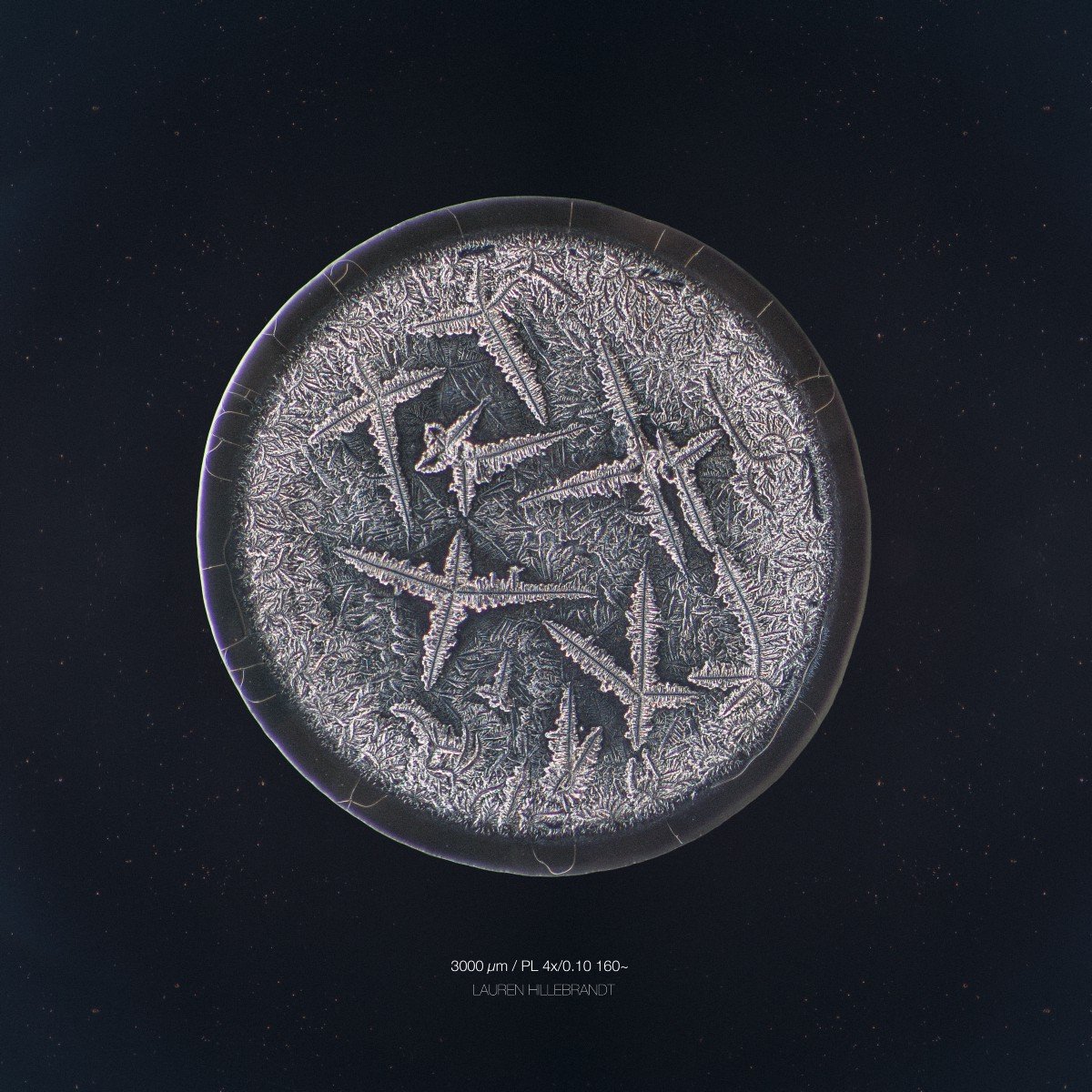
Tear of sadness due sickness of father
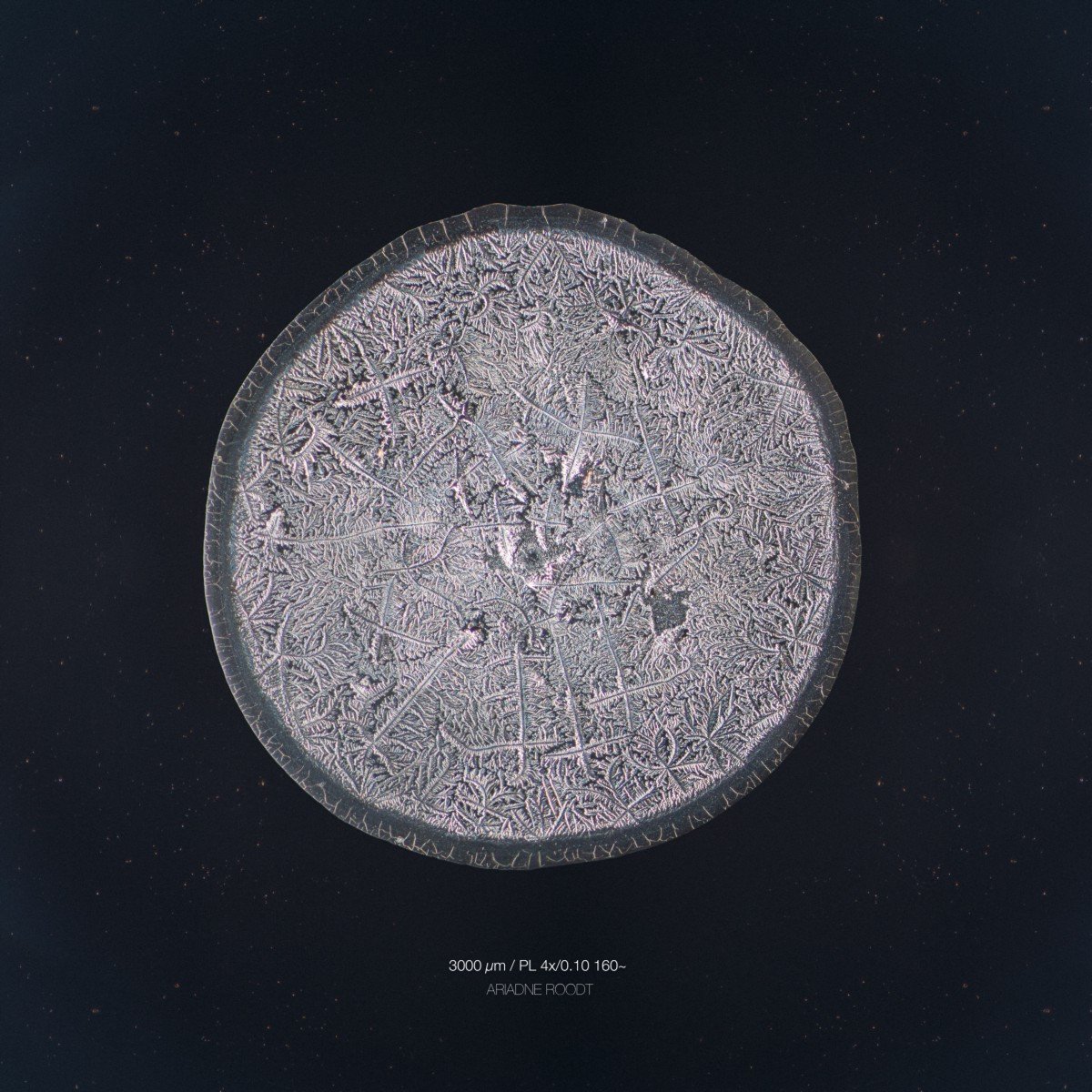
Sad memory of something that happened in the past
Reflex Tears:
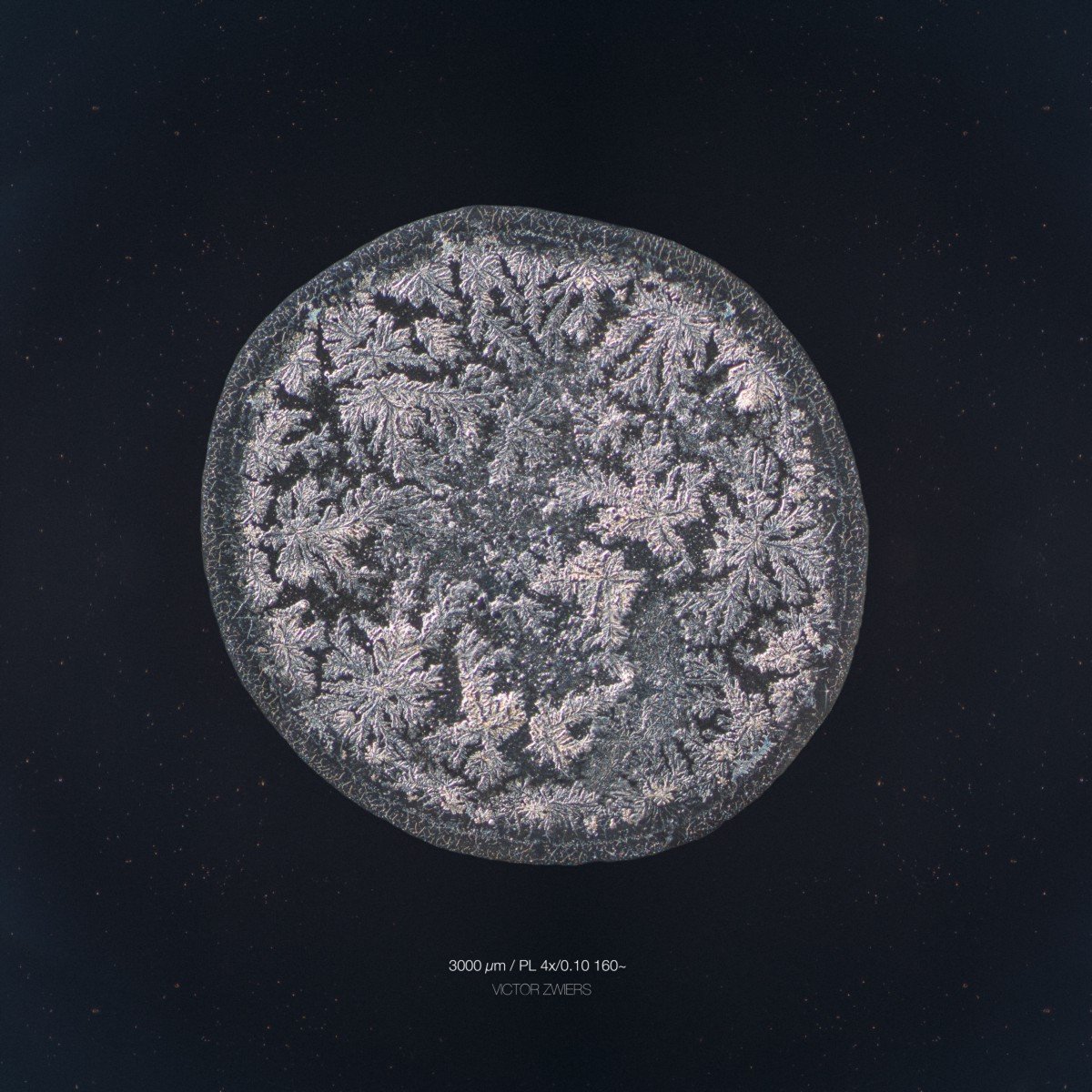
A tear harvested after cutting white onions, putting pepper in the eyes, snorting water and eating a red pepper
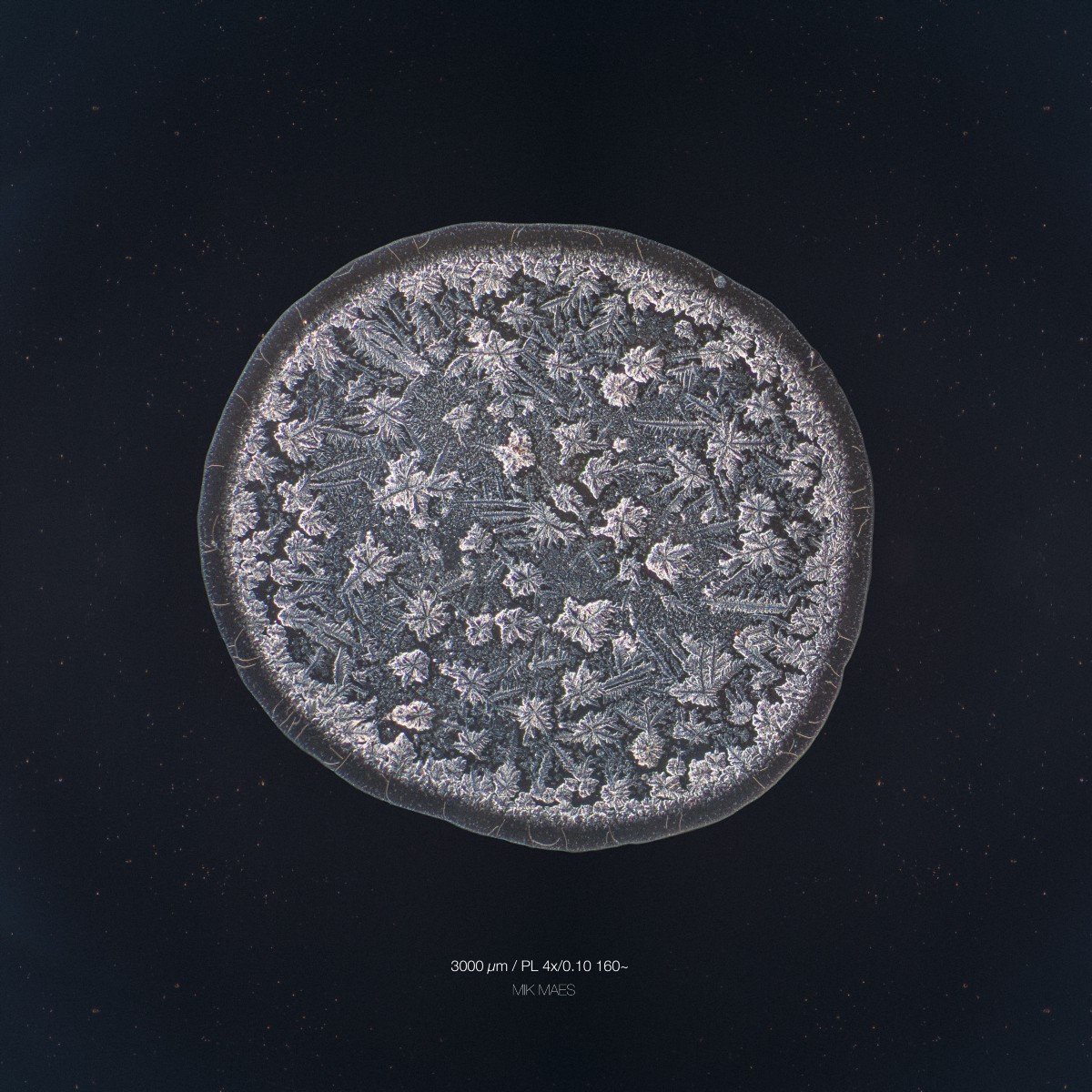
Tear of applying menthol oil close to the eye
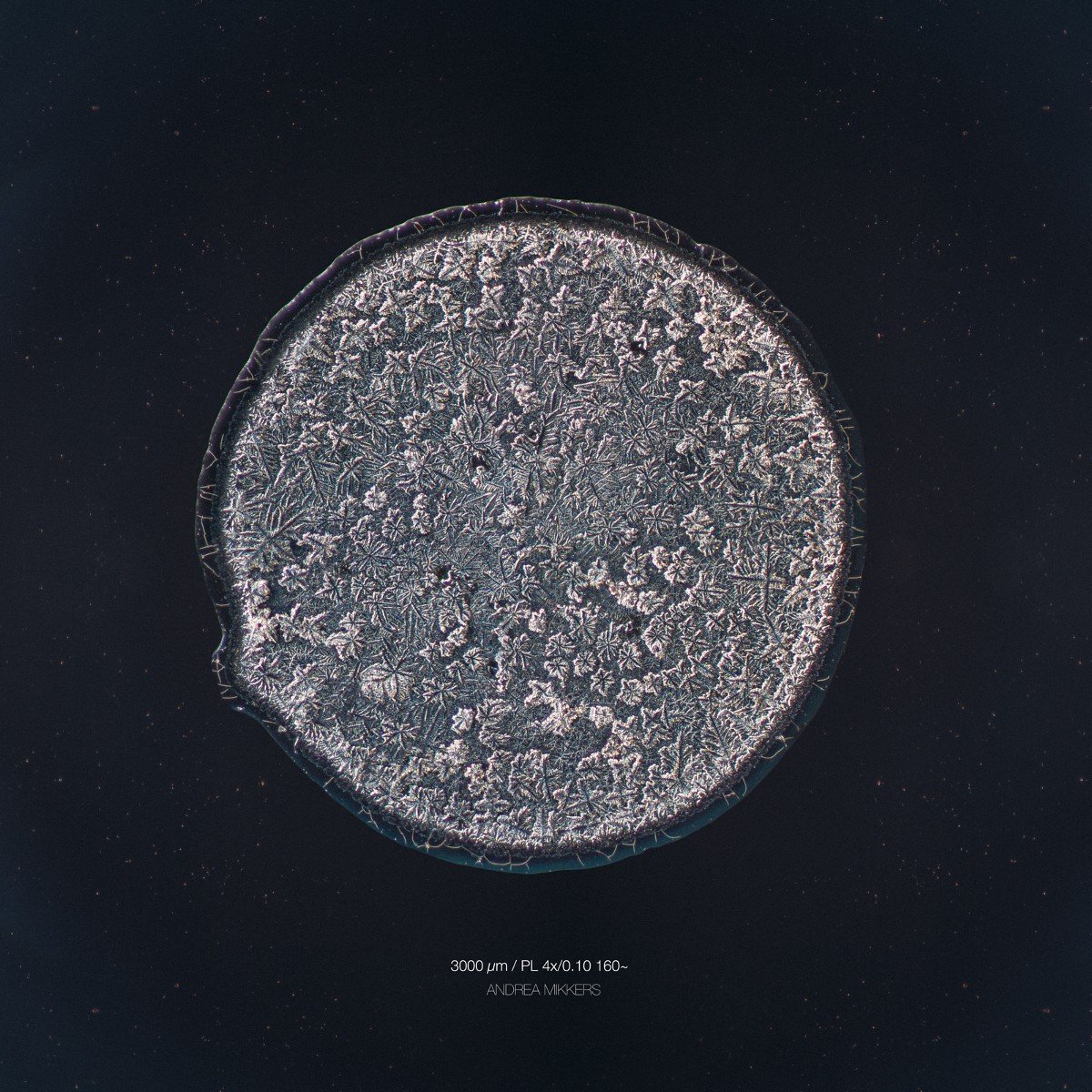
This tear is harvested after cutting white onions
Basal Tears:
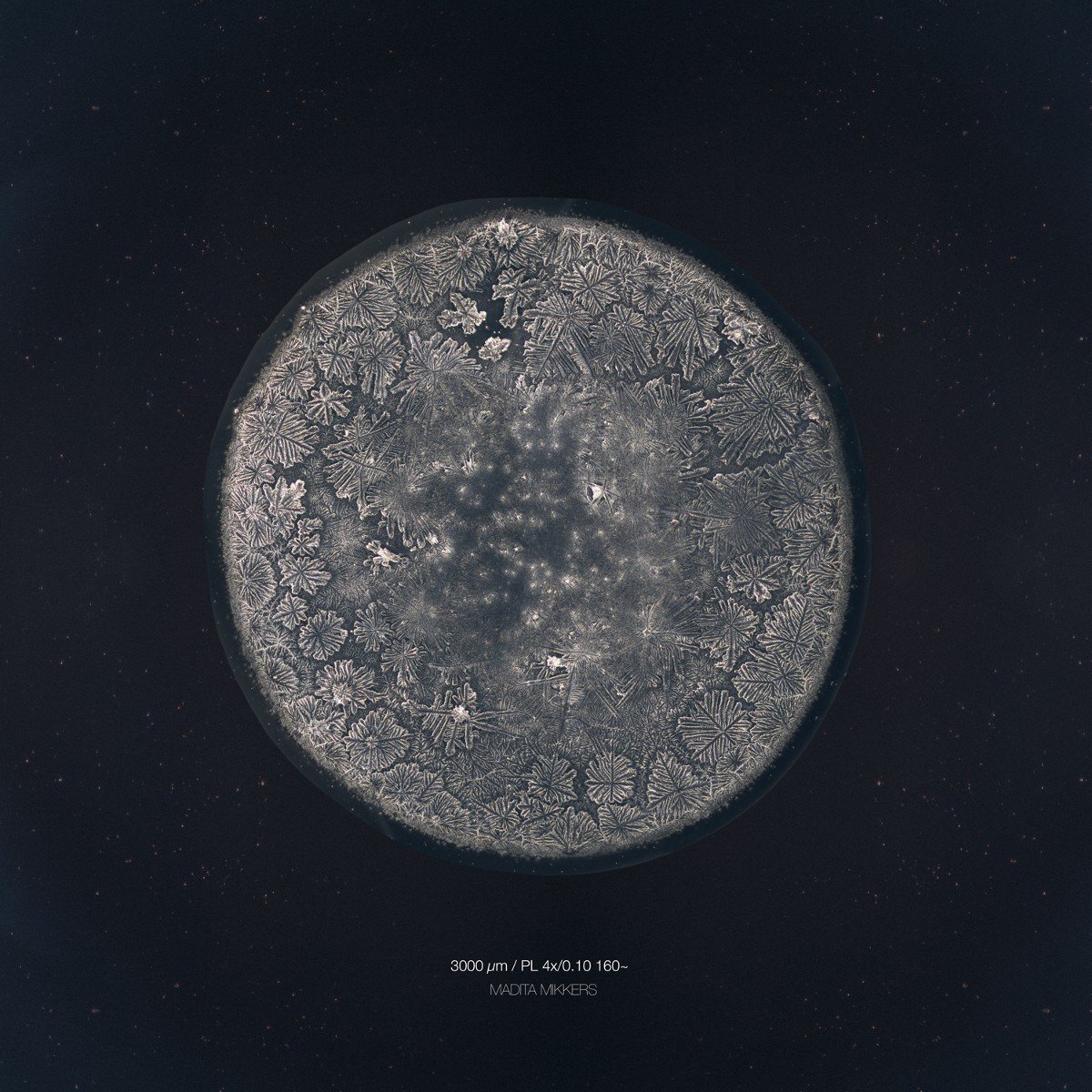
Biking into the wind
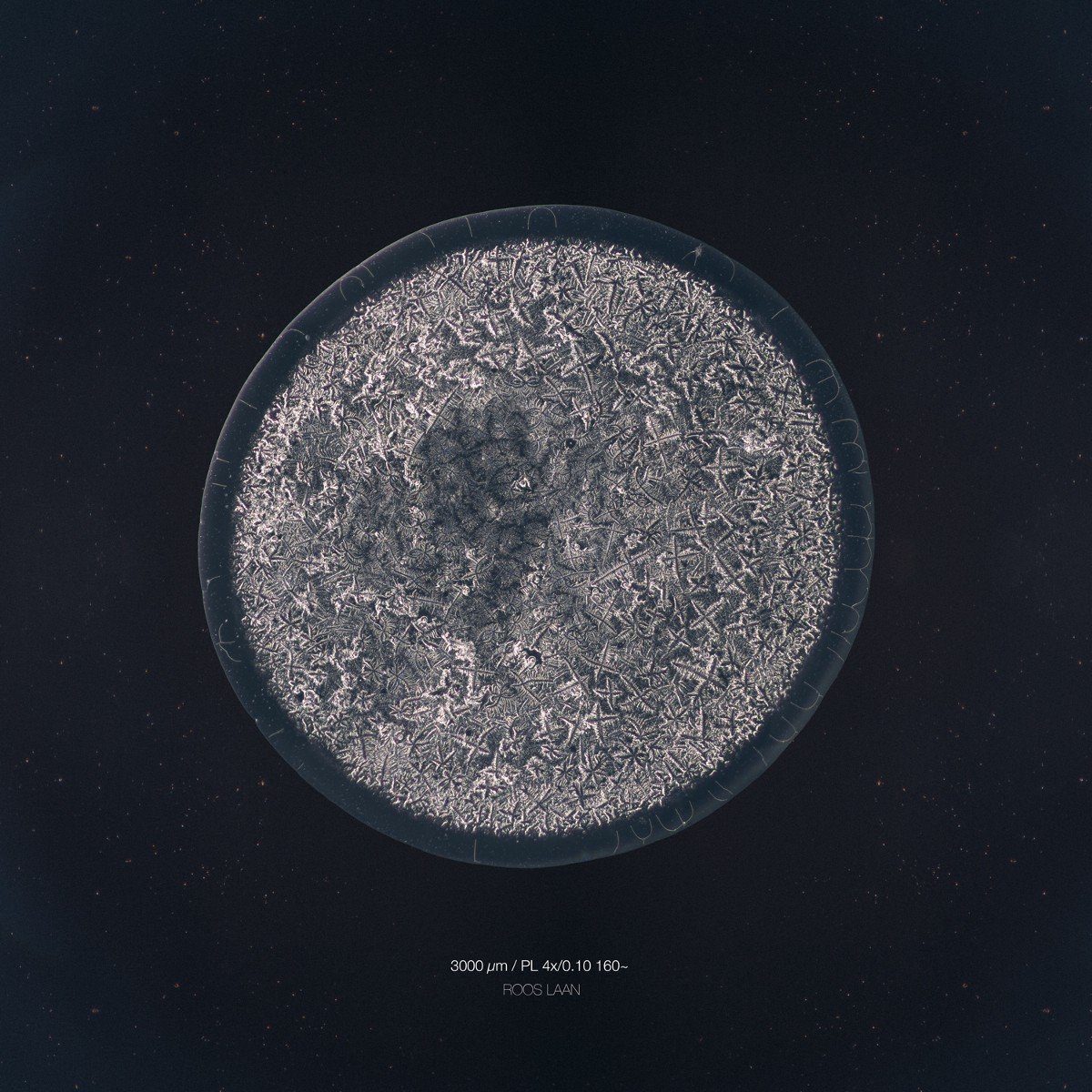
Tear of looking in to a ventilator
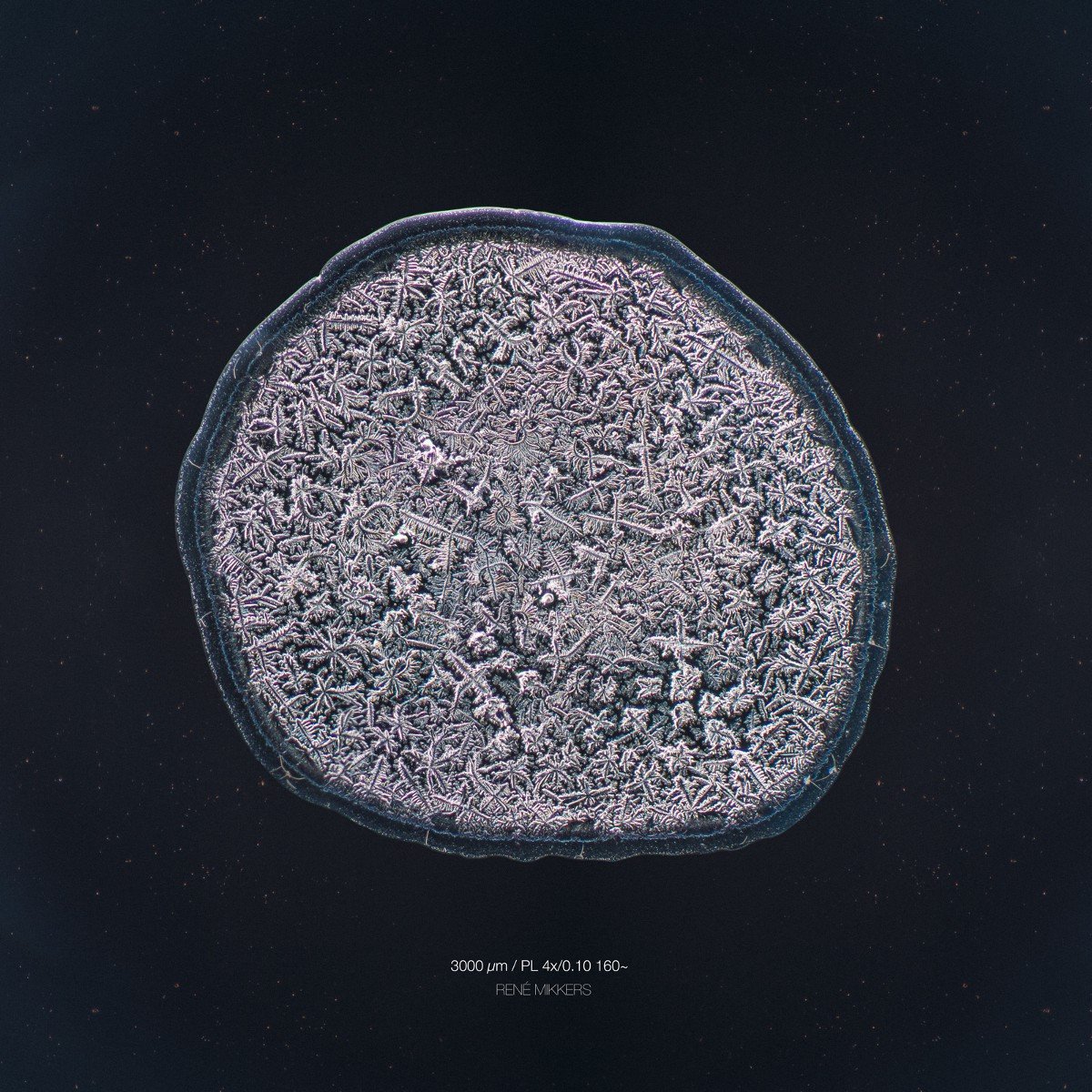
Tear of looking in to a ventilator
It would be great if one day I would be able too share this experience live with you during a local exposition. An exposition where you as a volunteer can donate a tear, a tear that would be added to the collection of tears that will travel the world.
-Barney
